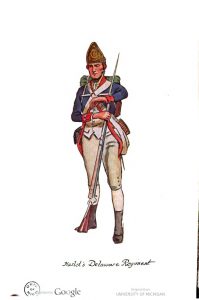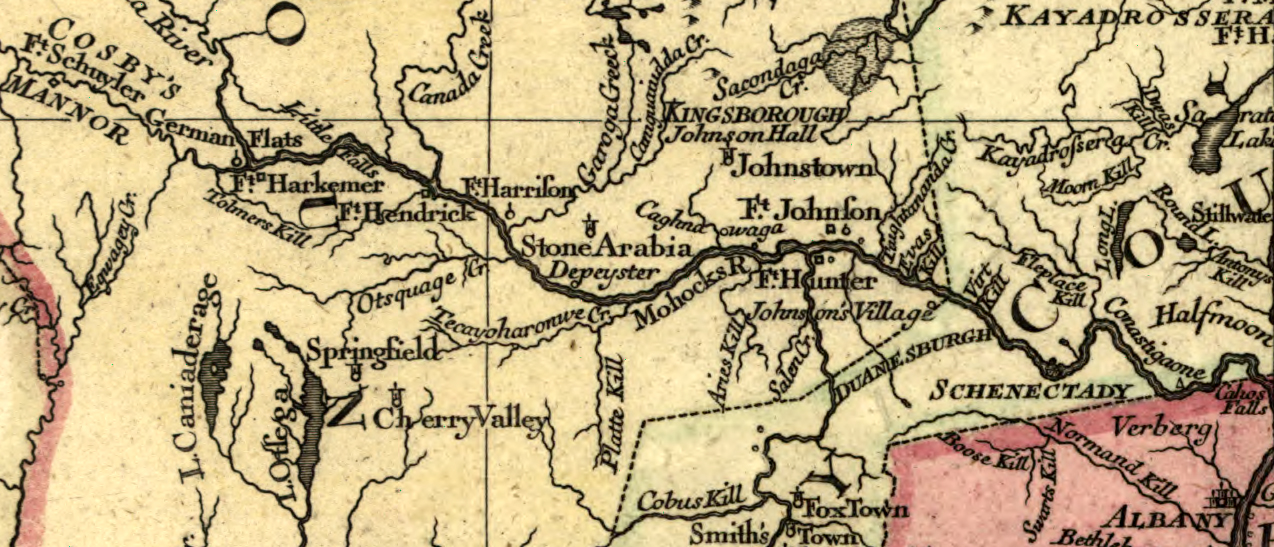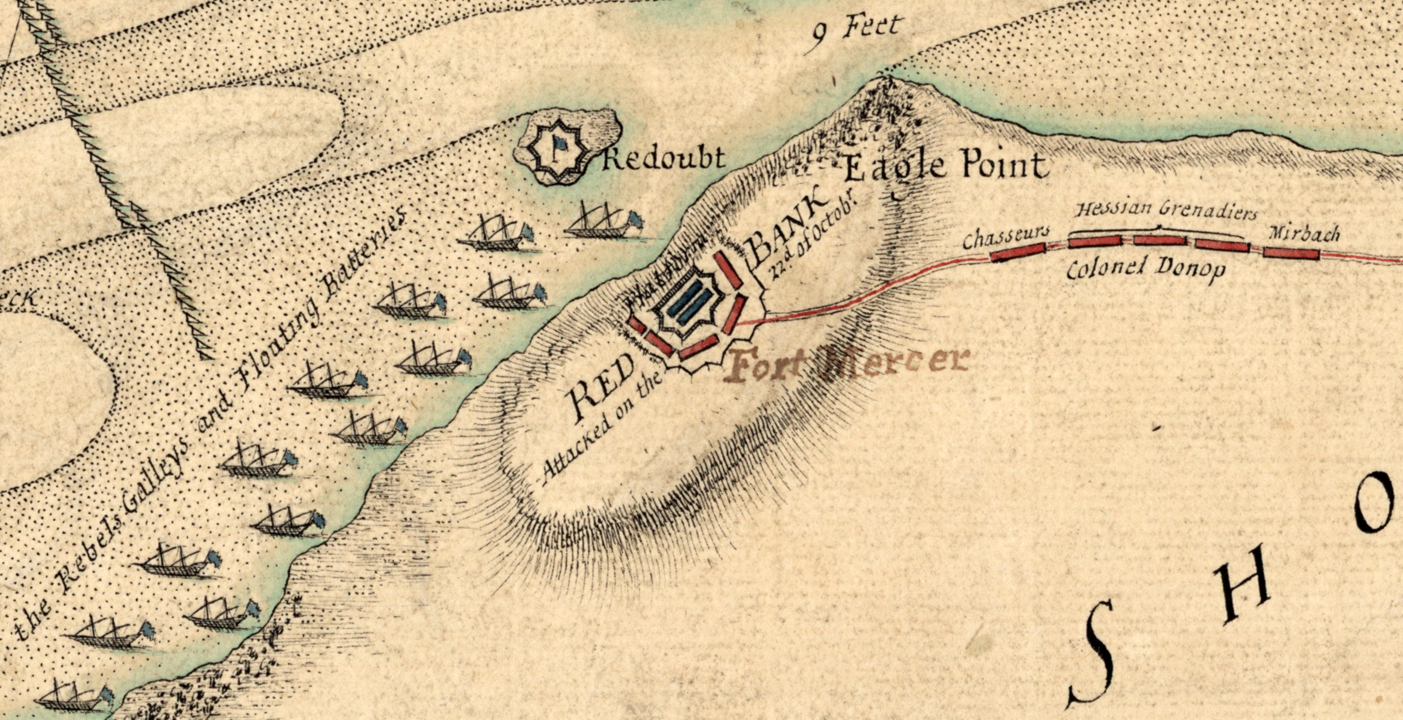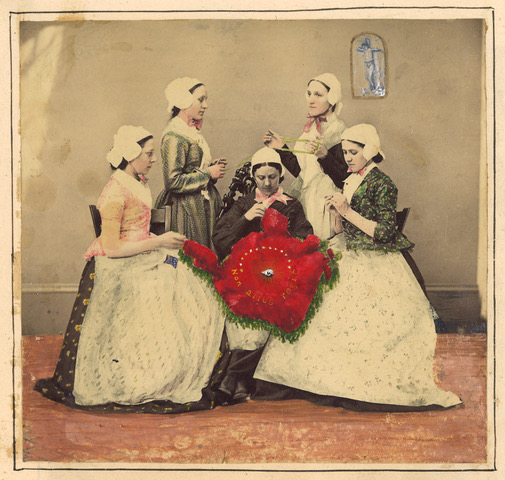Its list of battle honors nearly constitutes a history of the Revolution itself. During seven years of service, the Delaware Regiment earned a staggering combat record at the most legendary engagements of the war, including Long Island, White Plains, Trenton, Brandywine, Germantown, Monmouth, Camden, Cowpens, Guilford Courthouse, Hobkirk’s Hill, Ninety-Six, and Eutaw Springs.[1] They were eventually regarded as crack troops, and regularly given tough assignments. “The State of Delaware furnished one regiment only,” Henry Lee famously observed, “and certainly no regiment in the army surpassed it in soldiership.”[2]
But the Delaware Regiment, like all military units, spent far more time subjected to the monotony of camp life than the crucible of combat. Even the best of troops could grow a little testy, creating a seething atmosphere of raw nerves that could snap with little warning. Despite its elite status, the Delaware Regiment was composed of mere mortals who were prone to ill manners, short tempers, and bad behavior.
By the end of the war, the regiment had been reduced to a mere two companies under the overall command of Capt. Robert Kirkwood, who had the reputation of one of the hardest fighting company commanders in the Continental Army; thankfully, he was also a dutiful record keeper. Among the materials he recorded is information about disciplinary proceedings in the regiment. Unfortunately, most surviving court-martial summaries are often just brief snippets that offer limited details of events. Kirkwood did a little better than the average officer and – when active campaigning didn’t intervene – was better at preserving the particulars of regimental courts-martial. Kirkwood’s order book offers a priceless glimpse into the inner workings of one of the Continental Army’s most legendary units, and contains fascinating tidbits of authentically fallible human interaction that would otherwise have been lost to history.[3]
Encore, Encore
Diverting the attention of a robbery victim is an age-old ploy for criminals, and nearly worked for Private William Dowers. Dowers was in company with Sgt. Marmaduke McCain late in October, 1777, when McCain, who apparently possessed a fine singing voice, burst into sweet refrain. It must have been a stunning performance; to McCain’s delight, Dowers asked him to sing it again. Like any good vocal artist, McCain was happy to oblige, but must have been a little distracted by the sound of his own voice. When the encore performance was over, McCain suddenly noticed that his pocketbook, which had been lying close by and contained a $5 bill, was missing. He immediately accused Dowers of stealing it, but was met with sharp denials. Dowers was searched after the incident, but had no money on him.
The affair might have ended there if Dowers had exercised a little more caution. The day after he had been searched, Dowers was heading off to sentry duty with Private Henry Gardner when he asked Gardner to stop off to see a sutler. While there, Dowers made a disastrous mistake: he changed a $5 bill, and did so in front of several witnesses.
He would pay dearly for it. At his court-martial on October 25, Dowers could present little in the way of a defense, and came up with the rather lame excuse that he had “found” the $5 bill by a campfire. Nobody bought it. He was found guilty of stealing the money and sentenced to receive 500 lashes “well laid on.” The court mercifully reduced the sentence to 200 lashes, but had another minor instructive lesson for Dowers. He was ordered to pay McCain $5.[4]
Marching Left of Center
 The trouble started on the evening of November 26, 1777, when Private William Howell, parading with his company but “disguised in liquor”, was seen having a little trouble walking in a straight line. Sgt. Thomas Thompson observed his wobbly meanderings and ordered him to incline to the left and rejoin his own company. Howell snapped back “that he would not,” at which Thompson gave him a helpful shove in the right direction. A good bit irritated at the affront, Howell glared back at the sergeant and offered that, in his opinion, Thompson was a “Chuckleheaded Son of a bitch.”
The trouble started on the evening of November 26, 1777, when Private William Howell, parading with his company but “disguised in liquor”, was seen having a little trouble walking in a straight line. Sgt. Thomas Thompson observed his wobbly meanderings and ordered him to incline to the left and rejoin his own company. Howell snapped back “that he would not,” at which Thompson gave him a helpful shove in the right direction. A good bit irritated at the affront, Howell glared back at the sergeant and offered that, in his opinion, Thompson was a “Chuckleheaded Son of a bitch.”
It was an ugly thing to say, and sure to result in a regimental court-martial. Judgement was swift when the court convened the following day. Charged with “abusing” the sergeant, a contrite Howell pleaded guilty and confessed that “he was heady, & was rather rash in contradicting Serjt Thompson.” His forthrightness elicited little mercy. Although two other soldiers had their sentences reduced by the same court, Howell was sentenced to receive his full share of punishment: twenty lashes for mouthing off to a sergeant, and ten lashes for being intoxicated.[5]
Oh, You Mean that Handkerchief
Sometimes the cover-up is worse than the crime, particularly if one is really bad at cover-ups. While the Delaware Regiment was camped at Hanover, New Jersey during August of 1777, one of the locals, John Tappan, walked into a tavern to witness one of the most brazen – if clumsy – heists of the century. There were several people present, including the landlady, a girl, an unidentified soldier, and Private Dennis Maanna. In the privacy of an anteroom, the girl let it be known that she had “lost” her handkerchief, but apparently insinuated that it had been stolen. The unidentified soldier then entered another room with Maanna and asked him if he knew anything about it. Maanna played dumb and claimed “he had not got it.” The soldier then pointed to the tail of the handkerchief, which was clearly visible and hanging out of Maanna’s pocket, and said “there it is.” The game was up. Maanna sheepishly surrendered the handkerchief, and the girl announced that she knew about it all along but had been afraid to say anything.
At the court-martial on August 14, Maanna might have been better off to keep his mouth shut. He had consumed a gill of gin that day, he explained. Then he noticed the handkerchief on a chair, picked it up, put it in his pocket “by accident”, and forgot about it. The presiding officers of the court not only found Maanna guilty of stealing the hanky, but unanimously rejected his unlikely story. Maanna was sentenced to receive 75 lashes for stealing and an additional 25 lashes for lying to the court, to be administered “on his bare back well Laid on with the Cat o nine tails.”[6]
Nice Watch
Being confined under suspicion of “stealing a watch” was no laughing matter, and could result in an entirely unwanted encounter with the cat o’ nine tails. John Chambers explained that during the regiment’s stay in Philadelphia in the summer of 1777, John Pemberton had the habit of stopping by his room in the barracks to visit friends. During one such visit, Pemberton happened to notice a watch hanging on the wall, asked who owned it, and was told it was the property of Drummer Joseph Purdie. Pemberton clearly liked the looks of the timepiece. When he asked if Purdie might be willing to sell, Chambers thought he might. At that, Purdie took the watch down, “opened her” to have a better look, and then put the watch back.
At some point after that, the watch disappeared. Pemberton, the only suspect, was arrested on suspicion of the crime, and his case came before a court-martial on July 19, 1777. At least two men witnessed Pemberton admire the watch, but no one saw an actual theft. In his defense, Pemberton confessed that he had been “in Liquor” during the incident, and “seeing the Watch took her down & looked at her, and then put her up again.” There was simply no evidence that he had done more than that, and the court ordered that Pemberton “be immediately Releas’d from his Confinement.”[7]
Be Careful What You Wish For
There’s nothing quite so mind-numbing as redundant paperwork. That was obviously the sentiment of Sgt. James Stenson in June of 1777, when a quartermaster ordered him to fill out a return for provisions. Stenson demurred, observing that “he thought there was no Necessity of making one as he has already given in one.” According to the quartermaster, Stenson “absolutely refused” to turn in the requested paperwork.
Maj. Joseph Vaughan happened to overhear the conversation, and intervened on the quartermaster’s behalf, ordering Stenson to go and draw up the return “immediately.” As a thoroughly sour Stenson walked off, he did so mumbling that “it was better not to be a Serjt in this Rejt then be one.” Vaughan, assuming the mantle of a stern father figure, asked Stenson to repeat himself. It was better not to be a sergeant, Stenson barked as he spun around, “thats what I say.”
The presiding officers of his court-martial on June 29 were glad to oblige. “After Due Consideration”, Stenson was sentenced “to be reduced to the Rank And Serve as A Private Centinel.”[8]
An Unfortunate Misunderstanding
Picket duty might be less appealing than staying warm by a cozy fire, but far better than the alternative of a court-martial. During the last week of November 1777, Sgt. Adam Johnston was busy with his morning rounds, turning out men for routine picket duty at the Continental camp at White Marsh, Pennsylvania. Johnston noticed Private Martenius Sipple sitting by a campfire in front of his tent, but Sipple, seemingly lost in a world of his own, wasn’t stirring. The sergeant asked if he hadn’t heard the call to picket duty, but Sipple didn’t answer. As Johnston continued walking by, he prodded Sipple once again, and then heard the unthinkable: Sipple distinctly snapped “Go along you yellow Son of a Bitch.”
It seemed to be an open and shut case of insubordination, but at Sipple’s court-martial on November 30, the case took an unexpected turn. The surprise witness was Benjamin Moody, who explained that during the apparent confrontation with Sergeant Johnston, Sipple was already engaged in a heated argument with another soldier, William Ploughman, when he uttered the fatal words. That fact cast doubt on the entire prosecution. Moody testified that he couldn’t say if the expletive had been hurled at Johnston or Ploughman. Johnston also confessed that he wasn’t sure if the abuse was meant for him, but that he “understood it so at that time.”
With that in mind, the officers of the court decided that the nasty words had been intended for a lowly private – Ploughman – and not Sergeant Johnston. Sipple, relieved, no doubt, at the outcome of his court-martial, was spared the lash. Although a good mouth washing with a bar of soap might have sufficed, Sipple was forced to ask Ploughman’s forgiveness in front of their commanding officer.[9]
[1] The standard history of the regiment remains Christopher L. Ward, The Delaware Continentals, 1776-1783 (Wilmington: The Historical Society of Delaware, 1941).
[2] Henry Lee, Memoirs of the War in the Southern Department of the United States (New York: University Publishing Company, 1869), 185.
[3] All of the following stories are from Joseph Brown Turner, ed., The Journal and Order Book of Captain Robert Kirkwood of the Delaware Regiment of the Continental Line (Wilmington: The Historical Society of Delaware, 1910).
[4] Ibid, 216-217.
[5] Ibid, 255-256.
[6] Ibid, 142-143.
[7] Ibid, 119-120.
[8] Ibid, 91-92.
[9] Ibid, 260-261.









3 Comments
Great article! Interesting that these crimes are relatively petty. No desertions, dereliction of duty or murders. Though 200 lashes for stealing the $5 would not have appeared petty to the recipient!
The trial proceedings recorded in Captain Kirkwood’s orderly book are all from regimental courts, composed of officers from the defendant’s regiment, which tried only relatively minor crimes. Serious crimes like desertion, murder, grand theft, mutiny, etc. were tried by general courts, which consisted of officers from several regiments – and which could sentence capital punishment.
Excellent article!!! Thank you so much.